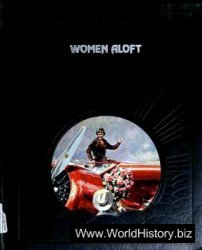Along with infl uencing political theory, war shaped thinking and scholarship in other
signifi cant ways. Humanists in Florence at the end of the fourteenth century had become
interested in Greek philosophy and literature along with Roman when Coluccio
Salutati, the chancellor of the Florentine republic, convinced the city to hire Manuel
Chrysoloras, the most eminent Byzantine scholar of classical Greek. The conquest of
Constantinople by the Turks in 1453 brought other Greek-speaking scholars, such as Johannes
Argyropoulos (1410–87), westward. Florentine intellectuals, most prominently
Marsilio Ficino (1433–99), became increasingly interested in the ideas of Plato. Under
the patronage of Cosimo de’ Medici (1389–1464), the most powerful man in Florence,
Ficino began to lecture to an informal group of Florence’s cultural elite – this became
known as the Platonic Academy, but it was not really a school – and translated Plato’s
dialogues into Latin. Angelo Poliziano (1454–94), a tutor in the household of Lorenzo
de’ Medici (1449–92), Cosimo’s grandson, translated Homer into Latin, and developed
methods of textual criticism relying on comparisons of manuscripts and a search for
the oldest among them that are still used today. Through these translations, Greek
learning became available to a much wider western European audience.
Ficino, who would eventually become an ordained priest, regarded Plato as a divinely
inspired precursor to Christ, and attempted to synthesize Christian and Platonic
teachings. Plato’s emphasis on the spiritual and eternal over the material and transient
fi tted well with Christian teachings about the immortality of the soul. Platonic
ideas about love – that the highest form of love was spiritual desire for pure, perfect
beauty uncorrupted by bodily desires – could easily be interpreted as Christian desire
for the perfection of God. Ficino and his most brilliant student, Pico della Mirandola
(1463–94), found such ideas not only in Christian and Platonic writers, but also in
works they regarded as even more ancient, such as Hebrew mystical texts called the
Cabala, metaphysical and astrological works attributed to the shadowy ancient writer
Hermes Trismegistus (called Hermetic texts), and number mysticism from the pre-
Platonic Greek philosopher Pythagoras. Ficino and Pico understood all these texts to
be teaching the same truth: that the universe was a hierarchy of beings from God down
through spiritual beings to material beings. For Ficino humanity was the crucial link
right in the middle, for humanity was both material and spiritual, body and soul; humans
themselves were also arranged in a hierarchy, from the rational and spiritual elite
who can understand complex philosophy to the unlearned masses. For Pico, humanity
was even more important; as he explains in the brief treatise, Oration on the Dignity of
Man (1496), man is the one part of the created world that has no fi xed place, but can
freely choose whether to rise to the realm of the angels or descend to the realm of the
animals. It is unclear in Pico’s treatise exactly how this fi ts with Christian teachings
about the importance of Christ in human salvation (and unclear exactly how women
fi t into his understanding of “man”), but for Ficino and the rest of the Florentine Platonists,
this glorifi cation of human nature had a clear scriptural base, for the Bible
taught that fashioning humans was God’s fi nal act in creation, and implied that God
regarded them as worth redeeming.
Ficino’s Platonized Christianity emphasized spiritual contemplation and study
more than active involvement in the world, which many historians see as a turning
away from the ideals of civic humanism. This happened at roughly the same time as the
French and Spanish campaigns in Italy, which began in 1494, a period in which courts
revolving around powerful noblemen were also becoming the most important cultural
centers. These military and political developments did not cause the new interest in
Platonic thought, but Ficino’s emphasis on the superiority of an elite fi tted well with
the new rulers’ concepts of themselves, particularly in combination with Machiavelli’s
notion of virtù , though these were based on diametrically opposite views of human
nature. Setting a pattern later emulated by rulers of nation-states, Italian noble rulers
hired humanist scholars, along with poets, artists, and musicians, to glorify themselves
and their families, making patronage of the arts and scholarship an expected part of
governing a territory.
Italy had been a destination for religious pilgrims, merchants, and university students
for centuries; the Florentine Academy, other humanist schools, and sophisticated
noble courts drew young men to Italy from all over Europe, with the French and
Spanish military campaigns bringing in still more foreigners. At the same time, Italians
trained as humanists traveled beyond the Alps as teachers, diplomats, canon lawyers,
merchants, and writers; Aeneas Sylvius Piccolomini, for example, traveled widely
in central and eastern Europe as a papal ambassador before he became Pope Pius II
(pontifi cate 1458–64). The historian Polydore Vergil, the scholar and theologian Peter
Martyr Vermigli (1499–1562), and the artist and engineer Leonardo da Vinci lived for
several years in northern Europe. These kinds of links, combined with the printing of
humanist texts, carried humanist ideas and institutions of learning beyond Italy.
Humanist scholars gained infl uence as the headmasters of Latin grammar schools
and professors of Latin grammar, rhetoric, and dialectic in many universities, but
even more through a growing interest in their ideas and writings within the social
elites in larger cities and at royal or noble courts. Johann Reuchlin (1455–1519), for
example, who had studied in France, the Holy Roman Empire, Switzerland, and Italy,
became a legal counselor and judge for several different German states. Conrad Celtis
(1459–1508) was crowned the poet laureate by the German emperor and gained imperial
patronage to open a humanist academy in Vienna; Celtis also organized humanist
discussion groups – called “sodalities” – among young middle-class men in German
cities such as Heidelberg and Ingolstadt, which became a network through which ideas
and cultural patterns were spread. In France, Jacques Lefèvre d’Etaples (1460–1536)
was the tutor to King Francis I’s children, and at the end of his life lived with a group
of his followers at the court of Marguerite d’Angoulême, Francis’s sister. In England,
Thomas Linacre (1460–1524) became the physician to King Henry VIII and the tutor
to his children, and in 1518 he founded the Royal College of Physicians. In Spain,
Antonio de Nebrija (1444–1522) became a historian to the royal crown and the head of
a team at the new University of Alcalá producing a multi-language edition of the Bible
(the Complutensian Polyglot) under the patronage of Cardinal Francisco Jiménez de
Cisneros (1436–1517), the head of the church in Spain. All of these men had studied and
traveled in Italy, sometimes as students at Italian universities and sometimes simply as
guests of Italian scholars.
Scholars and thinkers from outside of Italy often shared the ideas of Ficino and Pico
about the wisdom of ancient texts. Reuchlin mastered Hebrew through study with
several Jewish scholars because of his interest in the Jewish Cabala, and late in his life
he defended the reading and ownership of Hebrew books in a controversy that grew
to involve both the emperor and the pope. Lefèvre turned his attention fi rst to a better
translation of Aristotle, and then to publication of the works of various medieval mystics,
such as Ramon Lull and Hildegard of Bingen, and other writers whom he thought
had lived in the fi rst centuries of Christianity. Cisneros bought and borrowed the oldest
texts he could fi nd for the Complutensian Polyglot, which ultimately included a
Hebrew grammar and dictionary along with the biblical texts.
By the early sixteenth century, humanism outside of Italy had developed to the point
that a long period of Italian study and travel was no longer essential. The Dutch humanist
Desiderius Erasmus (1467?–1536), the most famous scholar of his time in all of
Europe, did not go to Italy until he was nearly forty. He then spent his time primarily
at the print-shop of the Venetian printer/publisher Aldus Manutius (1449–1515), working
alongside other scholars as he collected Greek and Latin sayings for his Adages .
This work presented and explained over 3,000 classical sayings, serving as a guide to
classical learning and a source of appropriate quotations for centuries. Sir (and later
St.) Thomas More (1478–1535), the most famous English humanist, learned his Greek
and Latin in England, and never even traveled to Italy. More was a lawyer who held a
number of positions in the City of London and at court before his surprise elevation to
the most senior legal position in the land – that of lord chancellor – in 1529. He was in
touch with Europe’s leading humanists and many of his Latin compositions and translations
were read across the continent. He is most famous for his controversial dialogue
Utopia (1516). Utopia , a word More invented from the Greek words for “no – where,”
describes a state somewhere beyond Europe in which problems that plagued More’s
fellow citizens, such as poverty and hunger, have been solved by a benefi cent government,
but in which dissent and disagreement are not tolerated. Whether this followed
in the humanist tradition of satire or represented More’s own views was unclear to his
contemporaries, and has been a matter of scholarly debate ever since.
More and Erasmus typify another aspect of humanism in the early sixteenth
century – its increasing concern with reforming the Christian church. Though Italian
humanists such as Ficino had been interested in Christian texts and ideas, they were
not interested in the church as an institution or in the beliefs of ordinary Christians.
More, Erasmus, the French scholar Lefèvre d’Etaples, the Spanish theologian Juan de
Valdés (1500–41), the Spanish educator Juan Luis Vives (1492–1540), the German knight
and satirist Ulrich von Hutten (1488–1523), and eventually many others were, for they




 World History
World History









